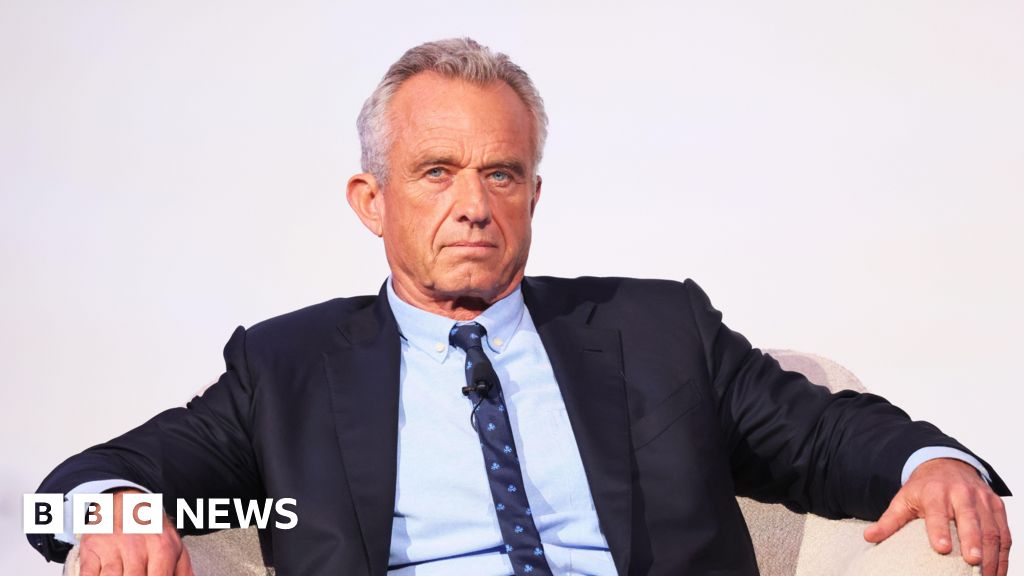
A recent U.S. government report on children’s health has sparked a significant controversy, with academics claiming that the document cited numerous “totally fabricated” studies to substantiate its findings. This troubling revelation raises critical questions about the integrity of research practices and the potential implications for public health policy.
The report, originally released on May 22, aimed to highlight what it referred to as a “chronic disease crisis” among American children. However, the situation escalated when digital outlet NOTUS uncovered that seven of the sources cited in the report were entirely fictional. An amended version of the report was issued shortly thereafter, on May 29, acknowledging the discrepancies.
White House Press Secretary Karoline Leavitt addressed the matter by citing “formatting issues” as the cause of the inaccuracies but insisted that the amendment did not undermine the core findings of the report. Yet, the fact remains that the usage of non-existent studies significantly undermines the credibility of the document.
At the helm of the Department of Health and Human Services, which published the report, is U.S. Health Secretary Robert F. Kennedy Jr. Known for pushing debunked claims linking vaccines to autism, Kennedy’s position raises further concerns about the report’s credibility.
The report was part of a broader initiative launched under one of President Donald Trump’s executive orders earlier in the year, which sought to “study the scope of the childhood chronic disease crisis and any potential contributing causes”. Titled the Make America Healthy Again Commission, the report concluded that factors like poor diet, environmental toxins, stress, inadequate physical activity, and “overmedicalisation” might contribute to chronic illnesses in children.
However, academics whose research was mentioned in the report have come forward to refute its claims. For instance, Guohua Li, a professor at Columbia University, was listed as an author of a nonexistent study on children’s mental health during the pandemic. He described the citation as “totally fabricated,” emphasizing that he had no association with the alleged study or its supposed co-author. Colleague Noah Kreski echoed Li’s sentiments, adding that the cited study simply does not exist.
Katherine Keyes, another academic wrongfully cited in the report, expressed deep concern over the implications of such citation practices. She stated, “It does make me concerned given that citation practices are an important part of conducting and reporting rigorous science.” This sentiment underscores the necessity for accuracy and accountability in academic and governmental publications, especially those impacting public health.
Further investigations revealed that another study referenced in the report involving psychotropic medication advertising for youth was not authored by the claimed author, corroborated by the academic institution employing him. This pattern raises alarms regarding the integrity of the report and the potential motivations behind its publication.
The Democratic National Committee has also criticized Kennedy’s Department of Health and Human Services for what they allege to be a manipulative strategy to support policy priorities with false citations. They pointed out that the report is “rife with errors, from broken links to misstated conclusions,” further complicating the landscape for accurate reporting on child health issues.
Since his appointment in February, Robert F. Kennedy Jr. has made significant changes to the Department of Health and Human Services, including substantial job cuts and proposals to implement placebo trials for all new vaccines. Such steps have elicited a range of opinions and concerns about the direction of health policy under his leadership.
This controversy surrounding the report brings to light a broader issue: the importance of credibility and transparency in research and reporting, especially when the findings can influence public health decisions and perceptions. Misinformation in such critical areas could have far-reaching consequences, especially concerning the health of children.
In conclusion, the backlash against the government report underscores the necessity for rigorous standards and ethical practices in health research. As we continue to navigate complex health challenges, it is crucial for policymakers to rely on accurate, scientifically valid data to inform their strategies. In an era where misinformation can spread rapidly, ensuring the integrity of health-related reports is more important than ever. The community, academics, and policymakers must work together to critically assess the information available, fostering a landscape where public health initiatives are effectively guided by rigorous and honest research.
Source link







